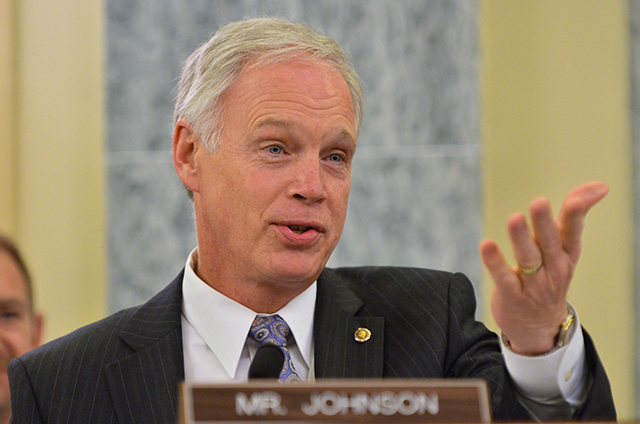Sen. Ron Johnson: Lawmakers Should Not Get Special Treatment Under Obamacare
Marguerite Bowling /
Sen. Ron Johnson (R–Wis.) today acknowledged that his lawsuit against the federal government—filed to prevent special Obamacare-related handouts to members of Congress—faces an uphill battle. Despite the long odds, however, Johnson reiterated his commitment to push the case.
During this morning’s health care panel at The Heritage Foundation, Johnson announced that “We are working hard now to get members of Congress to sign onto an amicus brief” in support of the suit.
In January, Johnson filed a lawsuit against the head of the Office of Personnel Management—the federal agency that handles the government’s health insurance program—charging that the agency’s decision to give premium assistance to members of Congress and their staff was unlawful.
Obamacare moved lawmakers and their staff from getting health coverage through the Federal Employees Health Benefits Program, and instead required them to buy health plans through Obamacare’s state and federal-run insurance exchanges.
Amid outcry from lawmakers and their staff, OPM last August issued a rule that the agency would give members of Congress and their staff premium support that they received from their FEHBP plans to pay for their new coverage in the Obamacare exchanges.
“I have no problem with employer contributions to health plans,” Johnson said. “That’s not the problem. It’s the special treatment for lawmakers that’s the problem.”
Critics of Johnson’s lawsuit have argued that the OPM’s rule change is simply the continuation of an employer contributing to an employee’s health plan—similar to how private-sector workers receive contributions for their job-based health plans.
“Success in this suit will mean that Congress will lose some of its best staff and will be staffed primarily by recent college graduates who are still on their parents’ insurance,” Rep. Jim Sensenbrenner (R–Wis.) said in a January statement. “This will make it even more difficult to fight the President and his older, more experienced staff.”
But The Heritage Foundation’s legal and health scholars argued the final rule was unlawful because OPM is only authorized to operate and pay contributions to the FEHBP. The agency cannot provide assistance for any plans sold in the Obamacare exchange.
The agency proposed to amend its Code of Federal Regulations to get around the rule but, as Heritage scholars noted, payments to unauthorized plans like those in the Obamacare exchange are expressly prohibited by the president’s signature health law.
“It’s hard to sue the federal government when you’re getting a freebie…but the main point is this is an extremely important case,” said Andrew Kloster, a legal fellow at Heritage, during the panel event.

